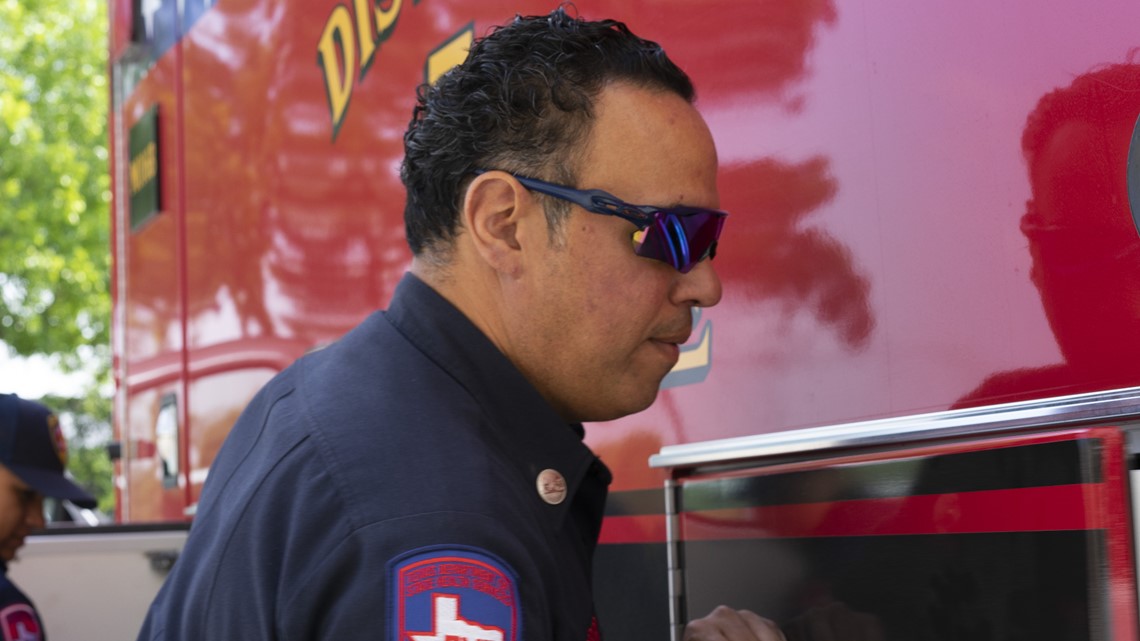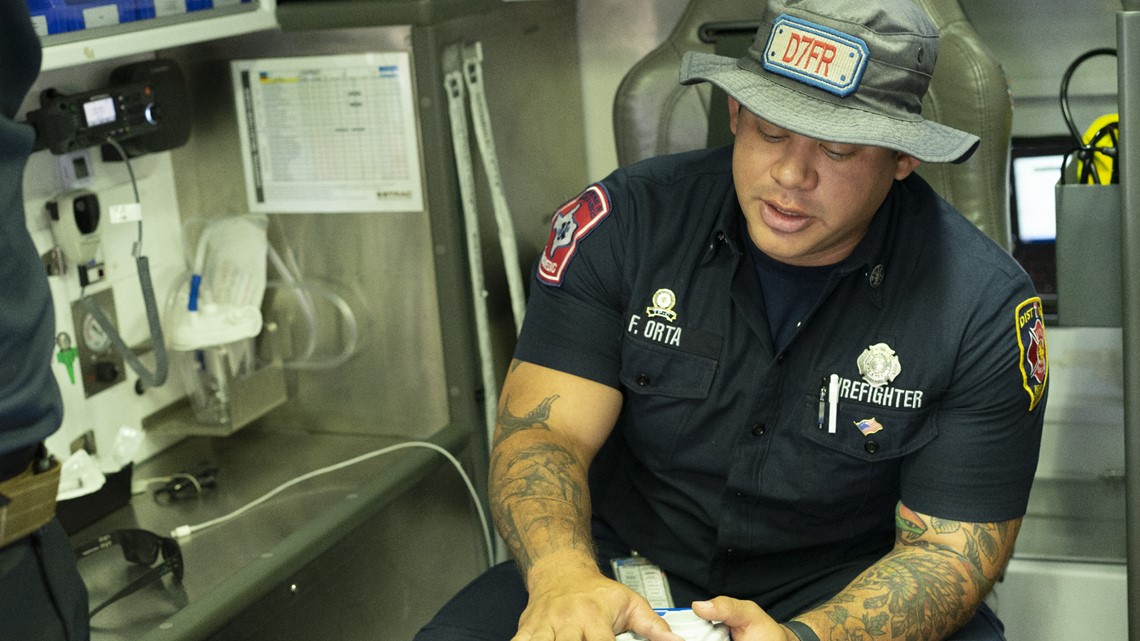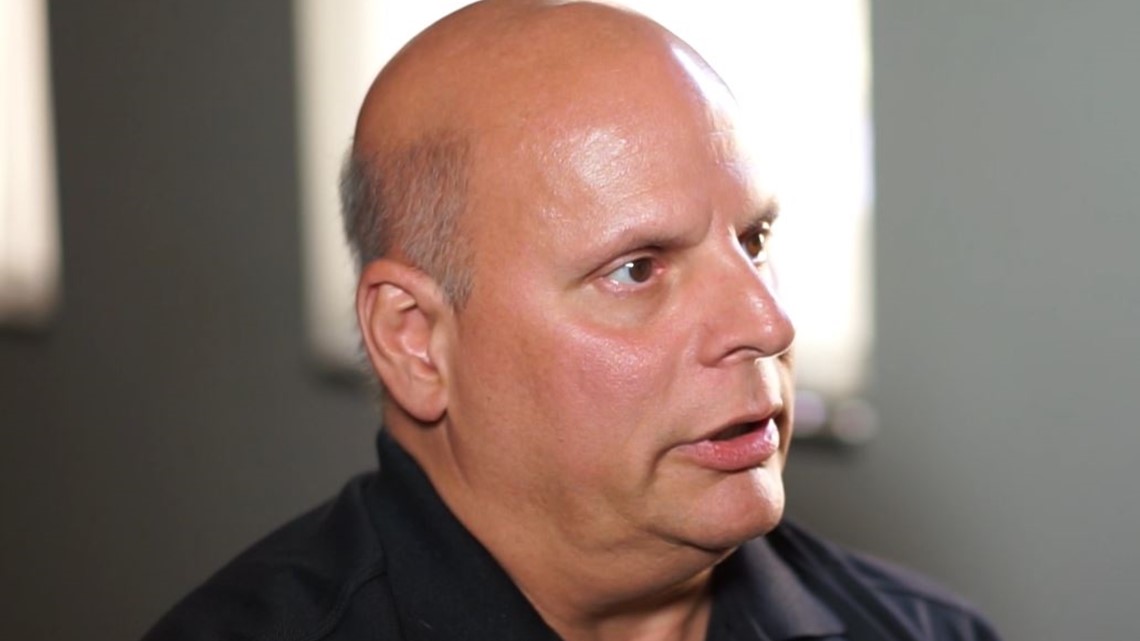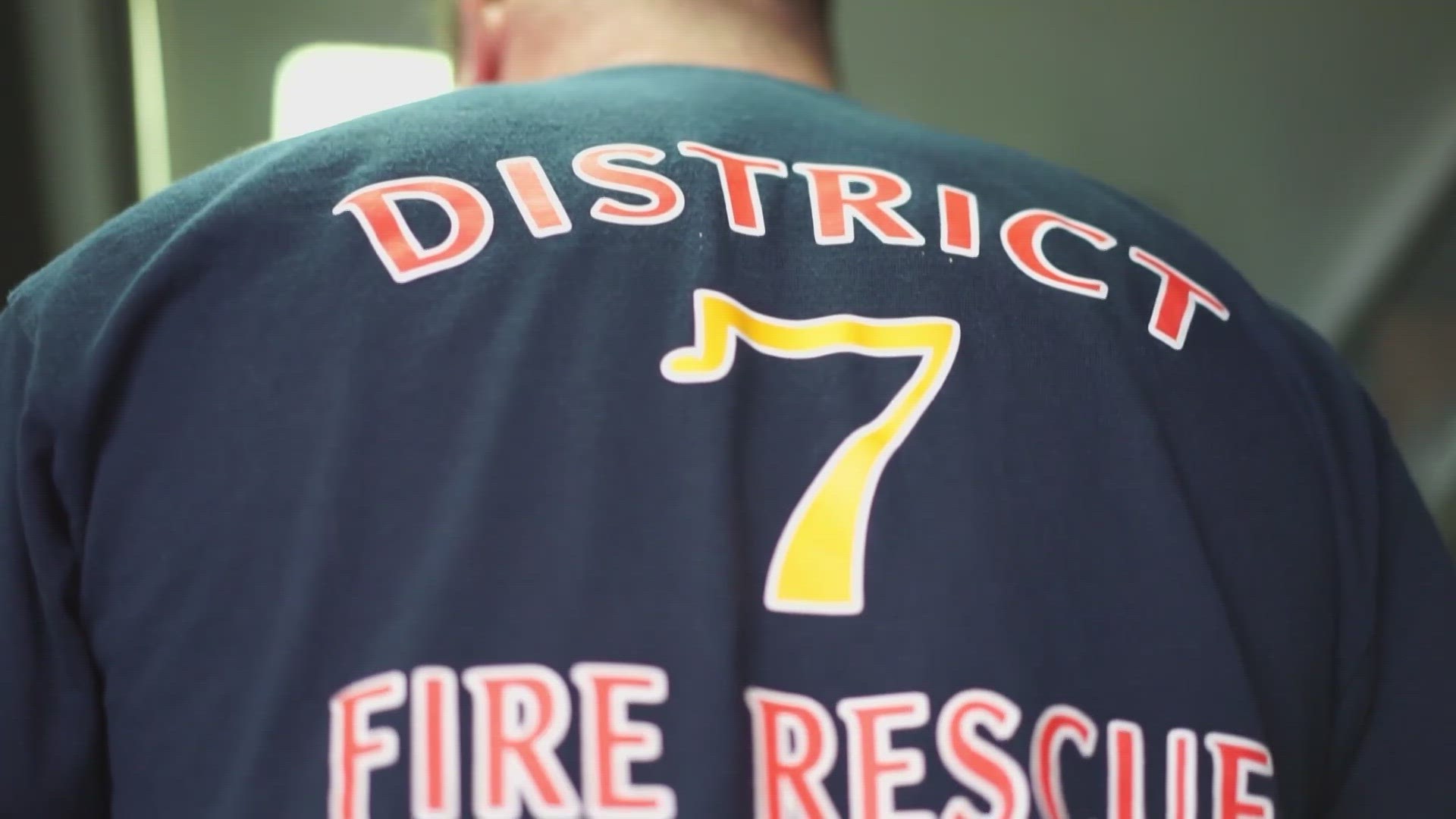SAN ANTONIO — First Responders' exposure to extreme incidents makes them five times more likely to have depression and PTSD, and a report from the Ruderman Family Foundation said. And sadly, their rate of suicide is higher too.
Troubled marriages are not anecdotal. According to the First Responders Initiative, divorce rates are around 50%, but the divorce rate for first responders hovers approximately at 60-75%.
Self-medication with drugs and alcohol is also an issue as emergency crews try to ease away the day's incidents.
The Federal Bureau of Investigations released its first-ever Law Enforcement Suicide data showing officer suicides and attempted suicides nationally.
As crime rises, police and EMS workers respond to more violent incidents fresh out of three years of COVID-19 and isolation. More mass shootings mean more scenes with extreme exposure to horrific images are a part of the job yet generate critical incident stress.
KENS 5 met Bexar County District 7 Fire and Rescue at a conference in San Antonio for critical incident stress management. They focused on mental health and healthcare workers.
We spoke with two of their firefighters and a nationally sought presenter about the reality of managing their jobs, stress, family and a profession where suicide is prevalent. Their fire district has had no suicides.
Chris Mascorro| Engineer | Bexar County District 7 Fire and Rescue


Q. Are you ever able to separate from mass casualty incidents?
A. It's always on your mind. You can always think about it when it does come up. I think what helps us is that we have teams-- like ours --we have a critical response team for our department in terms of helping with the kinds of stress matters that we can encounter.
We've learned through a process of training to help our peers. And our peers are really good about, 'Hey, you doing good? Are you okay? I know this happened. If you want to talk about it, let me know--on your time.'
Q. Not every chair is filled with a willing participant, and some may not even seek help. What do you say to those emergency responders?
A. Understand that it's okay to talk about it. It's not a bad thing. It's a good thing. Try to normalize situations so that, you know, you're just human. If you have feelings or you're feeling worried about something, that's because you're human.
Q. What you see on the job is not normal. How do you cope?
A. It's learning how to live with it and understand that you can cope with it---you won't forget it. It'll always be there. It's just how you continue.
When you're not clear-minded on this job, on this type of job, it's dangerous. The job is dangerous as it is. It's not a safe job. We know that from the get-go. But having an unclear mind, doing a dangerous job is not good.
Q. How do you find the courage to talk about what's going on with you as a first responder?
A. I think the courage comes when you see you see all the guys you worked with before.You end up seeing him at a funeral. That's when. It's nice to see your friends, your buddies from the academy, and whatnot. But....you just get tired of seeing them at that type of ceremony. And it makes you realize, hey, it's okay to talk about it. You need to talk about it.
Frank Orta| Firefighter |Bexar County District 7 Fire and Rescue |Navy Veteran


Q. How do you feel about what you do?
A. I like to think we have three jobs, which is fire protection, EMS, and public service. I personally jump out of bed when it's time for me to go to work. So it's amazing!
Stressful. Taxing on the body a lot. Also, mentally, I mean, you got to kind of deal with certain things that you see on the job and then come back-- and sometimes you got to put it behind you because you got another call coming and can't really think about it too much.
Q. What do you see and do?
A. Fire and EMS, you run car accidents, stabbings, shootings, suicides. Rollover accidents, ejections. Cardiac arrests in adults and kids. So you see everything. Sometimes it's a good turnout; sometimes, it's a bad turnout. You know, when it's a bad turnout, as far as us being unable to help them or it's too late for us to help them, we have to come back and get ready for the next call.
Q. Do you have to condition yourself to process the trauma?
A. Once I got used to it, it was. And it's kind of sucks to say it right-- 'get used to it' but you kind of get numb to stuff like that---and just keep kind of pushing forward.
I kind of have to put it in a box and go on the next call. That's how a lot of us deal with it. And it becomes to be a problem later on. And some people don't know how to talk about it. But it's also separating work from home.
It's not fair to our families and our wives and kids that we, you know, come home and take that home. You know what I mean?
I don't like to think about certain calls. I mean, I don't like to bring it up in conversation. I think ...It doesn't help me personally.
Q. Is there encouragement to take things 'out of the box?'
A. The culture has changed recently. You know, it used to be, you know, don't cry. Don't ask for help. You signed up for this job. This is what you're supposed to deal with.
Michael J. Saxe| Retired NYPD Detective| Chaplain Clermont Police and Fire Depts| Dora Police and Fire Depts| K-9 Therapy handler


Q. What are first responders looking for when they have critical stress?
A. Confidentiality is essential in speaking with people in the first responder field. They want to know that when they come to you that they can speak to somebody that's not going to violate their trust and that you're going to understand where they're coming from.
The greatest challenge in the first responder field is mental health that they can trust. Because their job is always at risk. If they speak, if they speak to somebody and open up to them, they have to worry about performance evaluations.
Law enforcement officer carries a gun. If they have their gun taken away, they're not a law enforcement officer anymore. So they're always worried about that. Whether that worry is real or not, it's very real to them.
Q. Is there a wall when it comes to sharing the stress of the job and life?
A. When I was a cop in the nineties, it was leave it in your locker. You don't talk about this. You don't bring it home to your families. You're a weak person. If you bring it home to your families, you don't even talk about it in the precinct or at headquarters.
Q. Are there differences in the critical stress levels in each agency?
A. Whether it's a mass casualty incident, whether it's a shooting, whether it's a car accident, whether it's a weather-related event, whether it's fire, ems, p.d., The federal government. We all run into the same exact situations.
While firefighters and cops are answering all of these calls and seeing , they still have financial problems. They still have marital problems. They still have all the problems of everyday life. And that doesn't stop just because they go to the job.
Then, they're running into a fire and feeling that intense heat, or they're doing CPR on a baby, and then they lose that baby, or they're going to that call, and then they're in a shooting, and they have to process all of that. And every day, all of the stresses of that job add up. And we call that cumulative stress.
And the way I look at stress, either you're going to deal with stress on your terms or stress is going to deal with you on its terms. And you never want to have stress deal with you on its terms because you're going to lose.
Q. How can they overcome and thrive?
A. They can have successful marriages. It doesn't have to be the 80% divorce rate. It doesn't have to be drinking and coping and all that stuff. It can be a good, happy, healthy life where we're great members of the community---partnered with the community.
They should be required to have in-service training where they understand what critical incidents stress management is, so they understand what the process is.
They should be required to have in-service training where they understand what critical incidents stress management is, so they understand what the process is.
Mental health is important. Peer support is important. And when we don't pay attention to it, the job suffers, and it costs the cities and the agencies big dollars.

